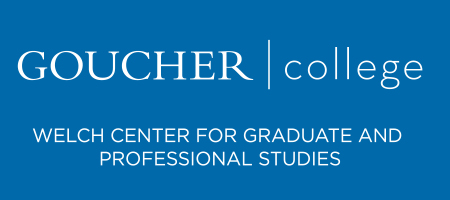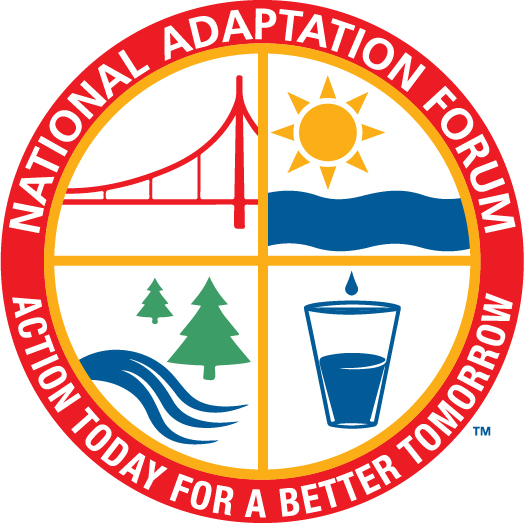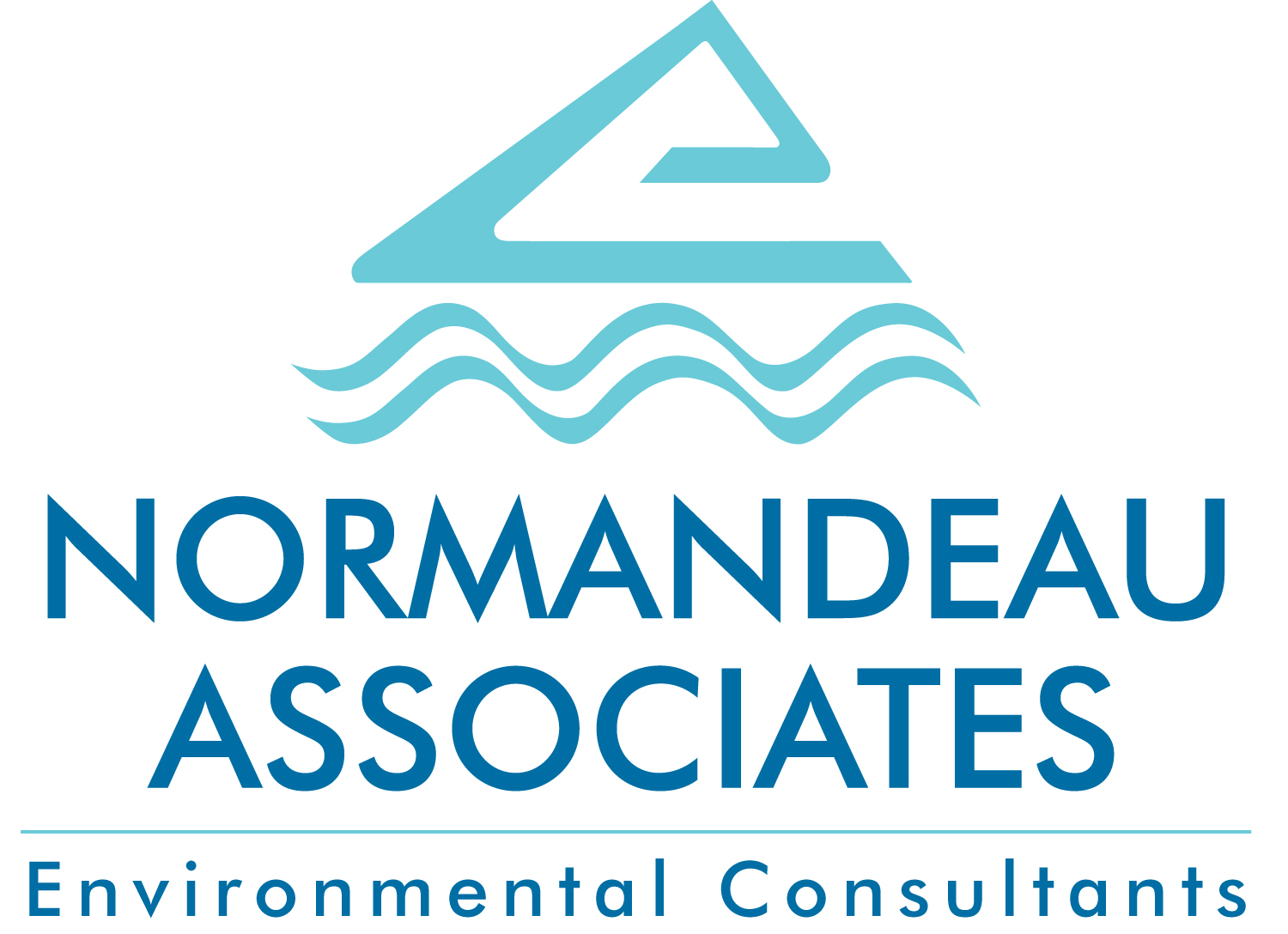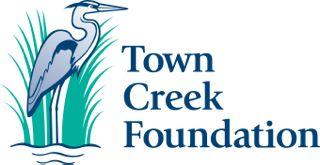Agenda
Education Summit Agenda
Click here for downloadable PDF

7:30
Breakfast and Registration
8:30-8:35 a.m.
Welcome
Melinda Treadwell, Vice President for Academic Affairs, Antioch University New England
8:35-8:40 a.m.
Welcome to Baltimore
Nick McDaniels, Teacher, Mergenthaler Vocational Technical High School, Baltimore, Maryland
8:40-9:30 a.m.
Panel: How can we build community resilience through education?
Three panelists will briefly address the theme of the Education Summit, and then there will time for questions and comments from summit attendees.
Rose Chaffee-Cohen, High School Science Teacher, Kent Place School, Summit, New Jersey
Ashley Edwards, Senior at Baltimore City College High School
Marianne E. Krasny, Professor, Department of Natural Resources and Director of the Civic Ecology Lab at Cornell University
9:30-9:35 a.m.
Break
9:35-10:35
Informational Sessions
Track I: How can your school contribute to community resilience?
Track I sessions offer participants opportunities to learn how schools can help to build community resilience on multiple scales, including through individual well-being and personal resilience, teacher-student initiatives at school and in the larger community, and/or collaboration with community partners. Schools can provide climate change education, which is the foundation for climate preparedness and community resilience, and sessions in Track I give participants knowledge, skills, and resources that empower them to work through their schools to build community resilience.
Complexity Builds Resilience: Building Oyster Reefs and Community Connections
Restore Urbanna Creek is a community project connecting schools, non-profit organizations, public utility companies, and government agencies in order to build oyster reefs in Urbanna Creek that will improve the water quality. Oyster reefs are complex ecosystems, and to build them requires complex communications between many people working toward one goal. Many people collaborating on a regular basis builds a healthier more resilient community. Oysters in the Chesapeake Bay are iconic symbols of sustainability as they provide jobs, strengthen the local economy, and improve the environment by filtering water and providing habitat. Restore Urbanna Creek improves water quality, builds stewards for the future, and brings people closer together to solve complex, authentic problems.
Presenter: Will Smiley, High School Science Teacher, Christchurch School, Christchurch, Virginia and Project Manager of Restore Urbanna Creek
Nature-Based Guides to Effective Teaching and Learning
Nature-Based Guides to Effective Teaching and Learning
Lessons from and in nature are powerful ways to enhance teaching and learning in all school subject and skill areas. They help optimize individual student achievement. They contribute to positive school and classroom environments. They encourage creativity, comprehension and collaboration to support students’ development of executive function skills, a predictor of school and life success. Come to this session for specific examples, tools, and resources to bring nature to life in your classroom or school and help build resilience in your community.
Presenter: Cheryl Charles, Ph.D., Executive Director of the Nature Based Leadership Institute, Antioch University New England, and Co-Founder, President, and CEO Emerita of the Children and Nature Network
Become an Energy Savings Superhero
This interactive and fun session that will illustrate the relationship between our energy choices and our changing climate. Come learn about THE EmPOWERS – a group of Energy Savings Superheroes who represent the energy sources where we derive electricity. By utilizing the free resource, THE EmPOWERS Activity Kit, we will focus on where our energy comes from, how much we use everyday, and how that impacts the environment and connects to climate change. the end you will also learn about the interactive Energy Arcade that bring energy efficiency to life. The Kit is designed for kindergarten through 6th grade, however it can be adapted for high school student so that they learn how to lead the lessons for the younger students.
Presenter: Larissa Johnson, Climate Change Outreach Coordinator, University of Maryland Center for Environmental Science
Track II: How can we educate in our local communities to build resilience?
Track II sessions offer participants opportunities to learn how they can educate their local communities about climate change and engage people in climate preparedness to insure a more equitable, just, and healthy environment for more people. Sessions address ways in which our local places, both natural and built, can be used to teach about climate change, its consequences, climate preparedness, and mitigation. Sessions in Track II also focus on how local resources (non-profit organizations, community members, businesses, municipal departments and offices, etc.) can be utilized effectively to build capacity for community resilience through education.
Living Shore: Building Resilience through Education and Collaboration on the Eastern Shore of Virginia
In the face of climate change and visible shoreline erosion due to sea level rise, restoration activities and environmental education open a powerful space for community collaboration. With funding from a Toyota TogetherGreen Innovation Grant Chincoteague Bay Field Station (CBFS) began work in 2014 on the Living Shore Project, which brings together groups in Greenbackville and Accomack County, Virginia, to restore a severely eroding shoreline. In the first year of the project, diverse families, members of a gated community, members of traditional Eastern Shore communities, college students, and college faculty worked together to install Oyster Castles®, stabilize the shoreline, plant native marsh grasses, and remove invasive Phragmites. CBFS is now building on the success of the initial project with the assistance of an EPA EE Local Grant. This spring, CBFS will begin developing an outdoor classroom and a public model for enhancing coastal resilience on the Eastern Shore. Through a community collaborative forum, environmental education, and demonstration of best practices, CBFS will engage diverse learners in creating a climate-literate and climate-adaptable community. Participants will learn about CBFS’s community engagement process as well as lessons learned and plans for the future.
Presenter: Anne Armstrong, MS/PhD candidate in the Civic Ecology Lab, Cornell University Department of Natural Resources
What’s the Sweatuation?: Using informal approaches to climate change education and network building
The Climate & Urban Systems Partnership (CUSP) rallies local stakeholders to figure out how to engage communities in climate change more often and more effectively. The project brings together informal educators, learning scientists, climate scientists, and local stakeholders to find an approach to climate change education that is informed by the latest research and best practices. As a result, CUSP champions an approach to climate change education that is “local, relevant, and solutions-focused,” and that focuses first, and most, on resiliency as a gateway to getting the general public to learn more about the larger issue. CUSP has also found that informal approaches are key to building a network and engaging the public. Learn how these approaches have manifested themselves in Philadelphia (including a 6-week “Sweatuation” campaign focused on sweaty body parts…) and how CUSP leaders have been educating communities, one neighborhood at a time.
Presenter: Richard Johnson, Franklin Institute Project Manager of the Climate and Urban Systems Partnership
Education About and Toward Resilience: Examples from NYC post-Hurricane Sandy
This presentation is about how environmental educators and related professionals contributed to the resilience and adaptation of New York City communities while also responding to new opportunities that arose in the three years after Hurricane Sandy. We will describe challenges and successes in efforts to incorporate the concept of resilience into educational practices and in efforts to respond to the needs of nearby communities and ecosystems. We will draw on these cases in order to highlight key opportunities for educators to contribute to resilience in their local communities and to be intentional about how they are engaging with the concept of resilience. We will be joined by an educator interviewed in this research to talk about his/her work first hand. Participants will be given a resilience fact sheet to take home.
Presenter: Bryce DuBois, Extension Associate, Cornell University and a doctoral candidate in Environmental Psychology, City University of New York Graduate Center
10:40-11:40 a.m.
Informational Sessions
Track I: School-Based Education (Formal)
Earthling Power: How Nature Study & Play Shape Our Understanding of Community
When children fall in love with nature the world changes — a bewildering dimension opens and they realize we are no longer at the center of the universe. We are but a single creature among many; we are one of the Earthlings. When we study and play in the forest the presence of the other Earthlings (and the odd powers they exhibit) rouses our curiosity. And it’s exactly this interaction that teaches us about our primary power . . . our imaginations. Nature is the great equalizer. When we are enmeshed in the more-than-human world we realize that community isn’t solely a human affair — it is the domain of Earthlings. Big, small, bipedal, rooted, or tailed, we all play a vital role in shaping and maintaining a healthy, Earthy community. In this session we will explore how nature-based education and play fosters a more encompassing, complex, and joyful understanding of community, and how this orientation is necessary in building our sustainable future.
Presenter: Michel Anderson, Ecoliteracy and Sustainability Coordinator, Waldorf School of Baltimore
Leading Resilience through Leading Institutions
Higher education organizations serve as a community-based institution of learning and therefore have a large role in communities and their economic and environmental resilience. Campuses also serve as a living lab, provide programming, curriculum, career pathways, and community leadership, all critical to a community’s resilience. This session will highlight the latest trends in higher education and resilience planning. Attendees will explore the American Association of Community College’s (AACC) report, “A Guide to Climate Resiliency & the Community College” where they will learn about tools and resources available to support their communities. This presentation will review a practical resilience agenda that considers jobs, economic development, training partnerships, and evolving programs through case studies surrounding energy efficiency, emergency response, green infrastructure, healthcare, and cross-sector planning for student success. Attendees will gain a greater understanding of the capacity and role of community colleges and a framework to support partnerships in the community, as well as set of tools to support the work.
Presenters:
John Dyer, Director of Workforce and Economic Development, American Association of Community Colleges
Amanda Kosty, Project Coordinator of Workforce and Economic Development, American Association of Community Colleges
Climate Change Education in Baltimore
Learn from a panel of Baltimore teachers about how they are bringing climate change education into their classrooms.
Presenters: Baltimore Teachers
Track II: Community Education (Non-Formal)
Community Climate Change Fellowship Program, building climate change resilience at the community level.
Learn how 26 Community Climate Change Fellows from all over North America are using innovative environmental education strategies to address climate change issues in their communities. For example, Jennifer Hubbard-Sanchez in Frankfort, Kentucky is working with Kentucky State University and the Kentucky Association for Environmental Education to create and implement sustainability, environmental, and climate change education with a broad range of multilingual communities; Maria Talero in Denver, Colorado is training community members on how to facilitate inclusive discussions around climate change; and Jason Davis in Boston, Massachusetts hosts an interactive online platform for individuals to share stories about the effects of climate change on our lives and in our communities. Be inspired by these imitative initiatives that use education to build community resiliency.
Presenter: Anne Umali Ferguson, Project Manager for the EECapacity Project, Cornell University
Climate Change Communication Strategies
Why is climate change such a polarizing topic? How can educators address this loaded issue effectively in their communities and programs? Participants will start by exploring ideas like terror management theory and the impact of social and cultural identities on climate-change related behavior. They will then move on to discussing climate change communications techniques identified in research that can be applied to education programs. Participants will also pinpoint areas in their own practice in which they can implement climate change communications strategies.
Presenters:
Anne Armstrong, MS/PhD candidate, Civic Ecology Lab, Cornell University’s Department of Natural Resources
Marianne E. Krasny, Professor, Department of Natural Resources and Director of the Civic Ecology Lab, Cornell University
Climate Kids: Weaving art, science, and storytelling to support community resilience
Climate Kids is a series of community-level collaborative projects to support youth engagement on climate change through action-based science activities, storytelling, and art. Each Climate Kids project brings together artists, scientists, and storytellers in a unified partnership to inspire and educate children. Learn more about how this collaborative approach is weaving together science, storytelling, and art to increase understanding of climate change and the actions we can take to minimize these risks. Learn about opportunities to join this collaborative effort and start a Climate Kids Project in your city today!
Presenter: Amber Pairis, Ph.D., Director of the Climate Science Alliance-South Coast
11:40-12:30 p.m.
Lunch and Focused Conversations
12:45
Activities: Professional Training Workshops, Collaborative Activities, Informational Sessions, Field Trip
Climate Change Integration Module: A STEM Integration Tool for Teacher Education Curricula
Climate Change is an issue that data suggests will affect the planet now and for future generations. It is important that educators understand how to explore / investigate this “real world” problem in the context of STEM teaching and learning within diverse communities. Trans-disciplinary learning is a pedagogical method that teachers can use to teach aspects of climate change. A Climate Change Integration Module will be presented that can be used in teacher education curriculum by pre-service and in-service teachers. In addition, data will be presented that represents evidence of a changing global climate.
Presenter: Dr. Kevin A. Peters, Director, Center for Excellence in Mathematics and Science Education, Morgan State University
Resilience, Adaptation, and Climate Communication: Applying research findings to environmental education programs
It often feels like we are constantly bombarded with the latest buzzword or scientific term—sustainability, resilience, cultural cognition, and even terror-management theory. Yet behind these terms, there is real research that can be applied to education programs. Learn about research on how education is fostering community resilience and climate adaptation and on how different groups react to climate change messages and messengers. Engage in a scenarios game where you apply this research to your own program. Finally participate in a discussion about how education programs can realistically apply findings from resilience, adaptation, and climate communications research.
Presenters:
Marianne E. Krasny, Professor, Department of Natural Resources and Director of the Civic Ecology Lab, Cornell University
Anne Armstrong, MS/PhD candidate in the Civic Ecology Lab, Cornell University’s Department of Natural Resources
Bryce DuBois, Extension Associate, Cornell University and a doctoral candidate in Environmental Psychology, City University of New York Graduate Center
Anne Umali Ferguson, Project Manager for the EECapacity Project, Cornell University
Climate Justice and Community Resilience: An Interactive Dialogue
This participatory session creates space for educators to learn from each other around issues of equity, justice and community resilience in the face of climate change. In this era of intense, unpredictable impacts of climate change, bridging environmental education and social justice is essential to enhance community resilience alongside fair, affordable food, housing, and health for all. Our theme will be: As educators, what can we do—individually and collectively—to increase equity and justice in the face of climate change, now and into the future? We will offer an overview of climate justice, share curricular resources, engage in educational activities and collective dialogue fueled by your passions. We invite educators to explore climate justice and share their experiences, successes, challenges, and tensions through an interactive process. Come ready to actively contribute to, and be inspired by, what matters most in this essential work.
Presenters:
Ben Currotto, Antioch University New England Community Garden Connections Coordinator
Tori Dahl, Antioch University New England Community Garden Connections Coordinator
Andrew Graham, Antioch University New England Community Garden Connections Coordinator
Jean Kayira, Professor, Department of Environmental Studies, Antioch University New England
Libby McCann, Professor, Department of Environmental Studies, Antioch University New England
Jennifer Trapani, Antioch University New England Community Garden Connections Coordinator
12:45
Collaborative Activity: Making Change
Spend the afternoon collaborating with other educators and students to create a document to influence education policy makers. What are the climate change and resilience issues we most want to convey to our local elected and appointed officials who make decisions that impact education and community resilience? What do we want to tell them about what is needed to build community resilience through education? Join with others in a facilitated process informed by your experiences in the Education Summit morning activities to influence policy makers. In addition to sharing what we write with your own local policy makers, perhaps we will also send the statement to candidates for U.S. President. WE are change agents!
Facilitators:
Abi Abrash Walton, Director of Center for Academic Innovation; Director, Advocacy for Social Justice and Sustainability Concentration, Environmental Studies Master’s Program; Co-Director of Climate Preparedness and Community Resilience, Antioch University New England
Chelsea Coombes, MS candidate, Environmental Studies, Antioch University New England
12:45-1:45 p.m.
Informational Sessions
Track I: School-Based Education (Formal)
A Place-based, Educational Videogame for Building Awareness and Motivation around Climate Change with High School students: “Future Delta 2.0”
This session introduces a unique and compelling video game that schools can use to build interest, awareness, and motivation among students on climate change and community resilience. Future Delta 2.0 is a realistic, place-based, commercial-style videogame, co-designed with teachers and students to engage ninth to twelfth graders in learning about and responding to climate change in their own neighborhoods. It provides experiential and fun learning activities in which the player uses novel tools such as Carbon Vision and Future Vision to tag everyday objects, earn knowledge points, interact with non-player characters, pursue discovery quests, and choose between alternative scenarios out to 2100. This information session provides participants with the latest research results and knowledge of powerful visual learning tools, using slides, video, and demos to explain how the game works, what results might be expected, and how the game could be used in classes in schools across North America. Teaching resources offered include the textbook “Visualising Climate Change” (Sheppard, 2012) and a website with the free downloadable game at http://futuredelta2.ca.
Presenter: Stephen Sheppard, PhD., ASLA, Professor, Forest Resources Management, University of British Columbia
Track II: Community Education (Non-Formal)
Building Student Environmental Leadership for a Greener School System
The Baltimore Office of Sustainability engages students and teachers in environmental leadership through a range of programs, including mini-grants, internships, summits, and celebrations. The reach of this work has been tremendous, with approximately 70% of the city’s public schools, and thousands of young people, engaging with them since 2010. During that time, the number of city schools certified via a state-wide Green Schools program has more than doubled, and the City School Board has moved to adopt new environmental policies and standards. Come learn about the partnerships and programs that have helped enable this shift, and how you can replicate them for your school system.
Presenters:
Abby Cocke, Environmental Planner, Baltimore Office of Sustainability
Andrea Calderón, Green Schools Assistant, Baltimore Office of Sustainability
2:00-3:00 p.m.
Track I: School-Based (Formal)
Examining student identity and agency in relation to climate change: a case study with 6th grade learners
Description: How today’s learners come to understand their own capacities to act in relation to climate change may have crucial implications for our climate future. This session will present insights from an in-depth case study of sixth grade students’ identity and agency development as they engaged with the topic of climate change in their middle school science classroom. Using data from interviews (students, parents, and teachers), focus groups, student work, and classroom observations, the presentation will synthesize the “story” of climate change from the sixth graders’ perspective. The presenter will highlight the students’ developing views of themselves and their capacities to act in relation to climate change and will discuss possible implications for climate change education.
Presenter: Emily Hastiness, Ph.D. candidate in Science Education, University of Maryland, College Park
Track II: Community Education (Non-Formal)
What’s the Sweatuation?: Using informal approaches to climate change education and network building
The Climate & Urban Systems Partnership (CUSP) rallies local stakeholders to figure out how to engage communities in climate change more often and more effectively. The project brings together informal educators, learning scientists, climate scientists, and local stakeholders to find an approach to climate change education that is informed by the latest research and best practices. As a result, CUSP champions an approach to climate change education that is “local, relevant, and solutions-focused,” and that focuses first, and most, on resiliency as a gateway to getting the general public to learn more about the larger issue. CUSP has also found that informal approaches are key to building a network and engaging the public. Learn how these approaches have manifested themselves in Philadelphia (including a 6-week “Sweatuation” campaign focused on sweaty body parts…) and how CUSP leaders have been educating communities, one neighborhood at a time.
Presenter: Richard Johnson, Franklin Institute Project Manager of the Climate and Urban Systems Partnership
12:45-3:15 p.m.
SciTech Field Trip
Visit SciTech and explore hands-on, minds-on learning activities to help your students dive deeper into studying climate change! Participants in this field trip will explore the question of warming oceans’ ability to absorb carbon dioxide using a self-designed experimental procedure. Wonder what you can do with proxy data? Our second activity will explore how paleobotanists use ancient pollen to find out about earth’s climatic past.
Housed in the Columbus Center in Baltimore’s Inner Harbor, TU’s Center for STEM Excellence includes the SciTech program which offers science lab activities in our dedicated student learning lab; provides qualified Maryland teachers free loaner lab kits complete with curriculum, reagents, and equipment necessary to conduct the lab investigation; and holds teacher professional development opportunities throughout the year. We are partnering with MADE CLEAR to increase our program offerings to support students learning about climate change.
3:15-3:30
Keynote Speaker: Bill McKibben (pre-recorded video)
Author and a Founder of 350.org
Followed by a brief discussion facilitated by Lisa Maggio, Education Summit Coordinator, Antioch University New England Graduate Student
3:30-4:00 Participant Forum
What’s Next?
Participants will engage in a facilitated activity that will provide opportunities to both reflect on their Education Summit experiences and encourage and inspire each other to proactively build resilience through education in their own communities.
Facilitator: Susan Jane Gentile, Education Summit Director, Antioch University New England















